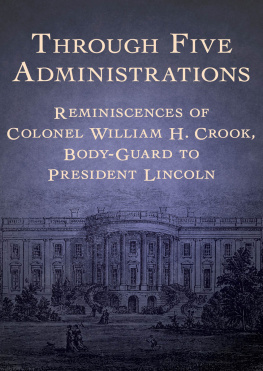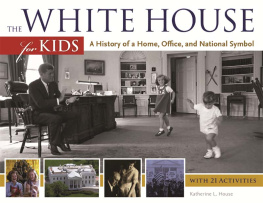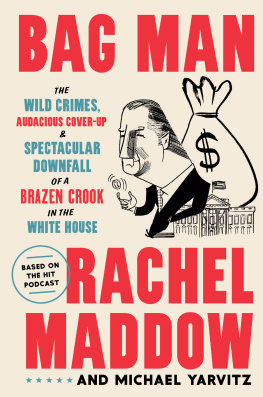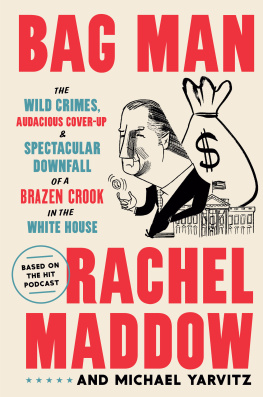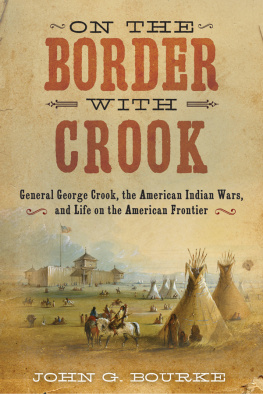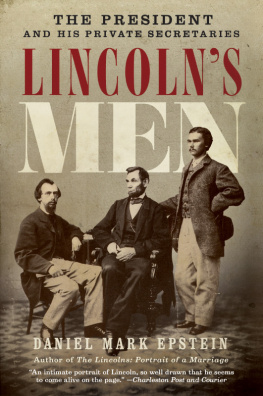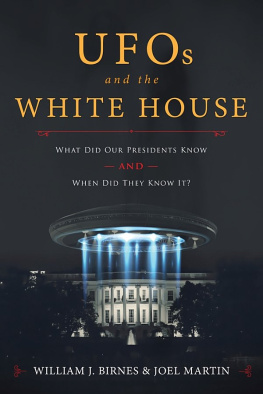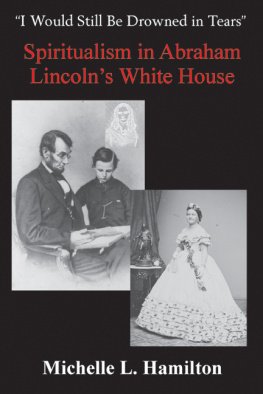Through Five Administrations
Reminiscences of Colonel William H. Crook, Body-Guard to President Lincoln
William H. Crook
Compiled and Edited by Margarita Spalding Gerry

I
LINCOLN AS I KNEW HIM
IT WAS IN NOVEMBER , 1864, that four police officers were detailed by Mr. William B. Webb, who was then chief of police in the District of Columbia, to be a special guard for President Lincoln. They were to act on instructions from headquarters, and were also to be subject to any orders the President might give. The men were Elphonso Dunn, John Parker, Alexander Smith, and Thomas Pendel. All have since died. They reported immediately to the White House. Not long after the appointment a vacancy in the position of doorkeeper occurred, and the place was given to Pendel. On the 4th of January I was sent to the White House to act as the fourth guard.
There was rotation in the service, although the hours were not invariable. The general plan was this: Two men were on duty from eight in the morning to four in the afternoon. These officers guarded the approach to the President in his office or elsewhere in the building, accompanied him on any walks he might takein general, stood between him and possible danger. At four another man went on duty and remained until midnight, or later if Mr. Lincoln had gone outside the White House and had not returned by that time. At twelve the second night-guard went on duty, and remained until he was relieved, at eight in the morning. The night-guards were expected to protect the President on his expeditions to and from the War Department, or while he was at any place of amusement, and to patrol the corridor outside his room while he slept. We were all armed with revolvers.
The reasons why the friends of Mr. Lincoln insisted on this precaution were almost as evident then as they became later. Marshal Ward Lamon and Secretary Stanton had been begging him, it is reported, since 1862 not to go abroad without protection of some kind. Mr. Lamon is on record as having said that he was especially fearful of the Presidents showing himself at the theatre. He considered that a public place of amusement offered an opportunity for assassination even more favorable than Mr. Lincolns solitary walks or the occasional drive or horseback ride he took to the Soldiers Home. Mr. Stanton is known to have been angered by a lack of caution which, on the part of a man so indispensable to the welfare of the nation as its President, he regarded as foolhardiness. For the President had always been inclined, in his interest in the thing that absorbed him, to forget that he was vulnerable. Every one remembers how, when he was watching Earlys threatened attack on the fortifications north of Washington, he exposed himself recklessly to chance bullets. He hated being on his guard, and the fact that it was necessary to distrust his fellow Americans saddened him. He refused to be guarded as long as it was possible for a sane man to persist.
But toward the end of 1864 so much pressure was brought to bear on him, particularly by Marshal Lamon and Secretary Stanton, that he finally yielded. He had admitted to Ward Lamon before this that he knew there was danger from a Pole named Garowski, who had been seen skulking about the White House grounds. He told Lamon of a shot that had barely missed him one day when he was riding to the Soldiers Home. Conspiracies to abduct or assassinate the President were constantly being rumored. At first he contended that if any one wanted to murder him no precaution would avail. Finally, although he was always more or less of this opinion, the President gave way to the anxieties of those near to him. He consented to the daily guard of police officers, and, on longer journeys, to a cavalry guard.
There were many reasons why this fact was not known at the time and has not been generally understood since. In the first place, the Presidents bravery (rashness, some called it), was so universally recognized, he had refused for so long to take any precautions, that people were not looking for him to change. In the second place, both from his own feelings and as a matter of policy, he did not want it blazoned over the country that it had been found necessary to guard the life of the President of the United States from assassination. It was not wiseespecially at this critical timeto admit so great a lack of confidence in the people. He was sensitive about it, too. It hurt him to admit it. But realizing that he had been chosen to save the country from threatened destruction, he forced himself, during the last months of his life, to be somewhat more cautious. When he had yielded, however, because of all these reasons, he wished as little show as possible of precaution. We wore citizens clothes; there was no mention of the appointment in the papers or in official records; we walked with him, not behind him. The President was simple in his manners; he was in the habit of talking freely with any one who wished to speak to him. So it happened that a passer-by had no way of knowing that the man in plain clothes who walked by Mr. Lincolns side was any other than the casual friend, office-seeker, petitioner, adviser, who helped to fill up every minute of the Presidents waking time.
I was very much surprised when the order came to report to the President for duty, and naturally elated. It was one Monday morning. I had never been inside the White House. I had seen Mr. Lincoln, and regarded him vaguely as a great man, but had never spoken to him. The first few days I was getting my bearings and accustoming myself to the new duties.
On the 9th I was put on night duty, covering the first part of the night. And so it happened that I was on guard at the first evening reception of the year, on the 9th of January. I knew the White House very well by this timethat is, the state apartments of the first floor and the Presidents office in the southeast corner up-stairs. The spectacle awed me at first. I had never seen anything like it before. The reception, or levee, as the name was then, was crowded. It was generally considered a brilliant affair. I know it dazzled me.
The President and Mrs. Lincoln stood in the octagon Blue Room, near the western door. I was in the main entrance just outside, near where the broad flight of steps used to go up to the second floor. The guests entered the northern door, left their wraps in the cloak-rooms which had been constructed in the corridor, assembled in the Red Room, made their way to the Blue Room, where they were received. Then they progressed, greeting friends in the crowd, through the Green Room to the great East Room, where they remained. On the right of the President was Mr. John G. Nicolay, one of the two secretaries; on his left Deputy-Marshal Phillips. Commissioner French presented the guests to Mrs. Lincoln. I suppose I could hardly be expected to remember what the ladies wore. But my wife saw in the paper the next day that Mrs. Lincoln wore white silk trimmed with black lace. She had a wreath of white flowers in her hair, and wore a necklace of pearls. I suppose the costume, hoop-skirts and all, would look ugly to me to-day. But we all thought Mrs. Lincoln looked handsome. To my mind she was a pretty woman, small and plump, with a round, baby face and bright black eyes. Senator Sumner was present, and Senator Chase with a party. That reminds me of what was to me the most exciting moment of the reception.
My orders were to allow no one who wore wraps of any kind to pass into the Blue Room. The reason for this is not hard to find. Precautions against violence were being redoubled, and this was one of them. It would be the easiest thing in the world for a would-be assassin to smuggle weapons in under the voluminous cloaks then worn. It had been announced that guests were expected to leave their wraps in one of the rooms appointed for them. I had been instructed to make absolutely no exceptions. The newspapers the next day said: The rule of decorum relating to wraps was very generally observed. They didnt know about my little experience.

